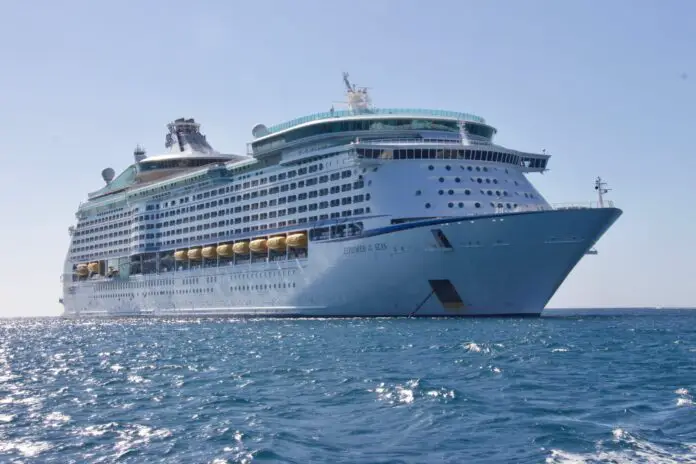Marine engineering, a dynamic and interdisciplinary field, encompasses a wide array of studies focused on the design, development, and maintenance of structures and systems that operate in the marine environment. The ever-evolving nature of this field presents numerous avenues for ground-breaking research. iLovePhD listed the Top 50 emerging research topics in marine engineering, each offering five innovative research ideas, paving the way for advancements in this critical field.
Research Topics in Marine Engineering
Autonomous Vessels and Robotics
1. Development of autonomous underwater vehicles (AUVs) for efficient underwater surveys.
2. Implementing artificial intelligence (AI) for autonomous navigation and collision avoidance in marine vessels.
3. Designing swarming techniques for multiple autonomous marine vehicles to collaborate effectively.
4. Enhancing communication systems for remote operation and control of unmanned marine vehicles.
5. Investigating the ecological impact of autonomous vessels on marine life and habitats.
Renewable Energy Sources in the Marine Environment
6. Optimizing wave energy converters for maximum power generation in varying sea conditions.
7. Designing floating offshore wind turbines for deep-sea energy production.
8. Investigating the environmental impact of tidal energy systems on marine ecosystems.
9. Integration of solar power technologies on maritime vessels for sustainable power supply.
10. Exploring the potential of osmotic power generation in estuaries and coastal regions.
Marine Biotechnology
11. Bio-prospecting for novel compounds from deep-sea extremophiles for pharmaceutical applications.
12. Developing bio-inspired antifouling coatings for ship hulls to reduce biofouling.
13. Studying the use of marine organisms for bioremediation of oil spills and marine pollutants.
14. Engineering biomimetic materials for underwater applications based on marine organisms.
15. Exploring the use of marine-derived enzymes in industrial processes.
Sustainable Marine Infrastructure
16. Evaluating the use of eco-friendly construction materials in marine infrastructure.
17. Implementing nature-based solutions for coastal protection and erosion control.
18. Studying the long-term effects of climate change on port and harbor infrastructure.
19. Developing smart and resilient offshore structures capable of withstanding extreme conditions.
20. Investigating the potential of 3D printing technology for rapid construction of marine structures.
Marine Data Analytics and Predictive Modelling
21. Utilizing big data for predictive maintenance of marine machinery and systems.
22. Developing predictive models for climate-induced changes in marine environments.
23. Studying the use of machine learning algorithms for optimizing ship routing and fuel efficiency.
24. Analyzing historical marine data to understand the impact of human activity on oceans.
25. Implementing predictive models for early detection and mitigation of marine disasters.
Underwater Acoustics and Communication
26. Developing high-resolution imaging techniques for underwater exploration and mapping.
27. Studying the impact of anthropogenic noise on marine life and ecosystems.
28. Designing efficient communication systems for underwater data transmission.
29. Investigating the use of acoustics for underwater object detection and tracking.
30. Exploring the use of acoustic signals for marine life behavioral studies.
Marine Cybersecurity and Digitalization
31. Evaluating the vulnerabilities of maritime cyber systems and infrastructure.
32. Developing secure communication protocols for connected vessels and offshore platforms.
33. Implementing blockchain technology for secure and transparent maritime transactions.
34. Studying the potential threats of malware and cyber-physical attacks on marine systems.
35. Designing robust Cybersecurity frameworks for autonomous marine vehicles.
Ocean Mining and Resource Management
36. Studying the environmental impact of deep-sea mining on ocean ecosystems.
37. Developing sustainable extraction techniques for rare earth metals from the seabed.
38. Evaluating the economic feasibility of extracting minerals from oceanic sources.
39. Implementing regulations and policies for responsible ocean resource management.
40. Investigating the potential of utilizing microorganisms for deep-sea mining applications.
Climate Change Adaptation in Marine Engineering
41. Designing adaptive strategies for ports and harbors to cope with rising sea levels.
42. Studying the impact of climate change on marine biodiversity and ecosystems.
43. Developing innovative solutions for mitigating ocean acidification effects on marine structures.
44. Implementing resilient design strategies for vessels to navigate changing weather patterns.
45. Evaluating the impact of climate change on maritime trade routes and navigation.
Emerging Materials and Coating Technologies
46. Exploring nanotechnology for developing advanced coatings to resist corrosion in marine environments.
47. Studying self-healing materials for ship hulls to prevent structural damage.
48. Investigating the application of graphene-based materials in marine engineering.
49. Designing bio-based polymers for sustainable marine packaging and products.
50. Developing eco-friendly anti-corrosion coatings derived from natural marine compounds.
The realm of marine engineering holds immense promise for ground-breaking research and innovation. The evolving challenges and opportunities in this field offer a wide spectrum of potential research topics, each holding the key to advancing marine technology, sustainability, and our understanding of the complex marine ecosystem.
As researchers investigate the above 50 emerging research areas, they pave the way for transformative solutions that will shape the future of marine engineering, leading to an era of sustainable, efficient, and technologically advanced marine systems.


